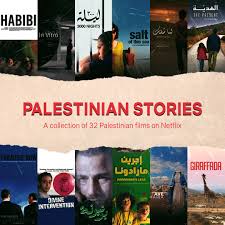In a move that Netflix sparks significant debate across the entertainment and human rights sectors, the streaming platform’s decision not to renew its “Palestinian Stories” collection has ignited widespread criticism. The collection, which showcased 19 significant Palestinian films since October 2021, faces imminent removal as licensing agreements reach their conclusion.
Content Licensing and Platform Policies
The streaming giant’s decision reflects standard industry practices regarding content licensing agreements. Similar to high-profile shows like “Friends” in the U.S. or “Mr. Robot” in Arabic countries, these Palestinian films were acquired under time-limited licensing deals. Netflix maintains that some Palestinian-created content remains available on the platform, emphasizing their ongoing commitment to diverse storytelling. However, the dramatic reduction in available titles – with reports indicating only one film remaining on the Palestinian Stories page – has raised questions about the platform’s content strategies and representation policies.
Human Rights Organizations’ Response
The decision has mobilized numerous human rights organizations, led by Freedom Forward, which published an open letter criticizing the platform’s actions. The coalition, including prominent organizations such as the Arab American Action Network, Council on American Islamic Relations, and the National Network for Arab American Communities, demands greater transparency regarding the removal decision. Their concerns center on the cultural significance of these works and the timing of their removal amid heightened global attention on Palestinian issues.
Impact on Cultural Representation
The affected collection includes significant works such as Rani Massalha’s “Giraffada,” Jessica Habie’s “Mars at Sunrise,” and Elia Souleiman’s “Chronicle of a Disappearance.” These films represent important Palestinian narratives and perspectives that have contributed to global cultural understanding. Netflix’s response emphasizes their continued investment in “quality films and TV shows to meet our members’ needs, and celebrate voices from around the world,” though critics argue this doesn’t adequately address concerns about Palestinian representation specifically.
As Netflix sparks this latest controversy in the streaming industry, the situation highlights broader questions about content accessibility, cultural representation, and the impact of licensing agreements on diverse storytelling. While the platform defends its decision as a routine business practice, the outcry from human rights organizations and cultural advocates underscores the complex relationship between commercial streaming services and their role in preserving and promoting diverse cultural narratives.
The debate continues to evolve as stakeholders push for greater transparency and commitment to maintaining diverse content libraries. This situation may set precedents for how streaming platforms handle similar content decisions in the future, particularly regarding culturally significant collections and representation of underrepresented voices in global media.
For More Updates
Related News
















